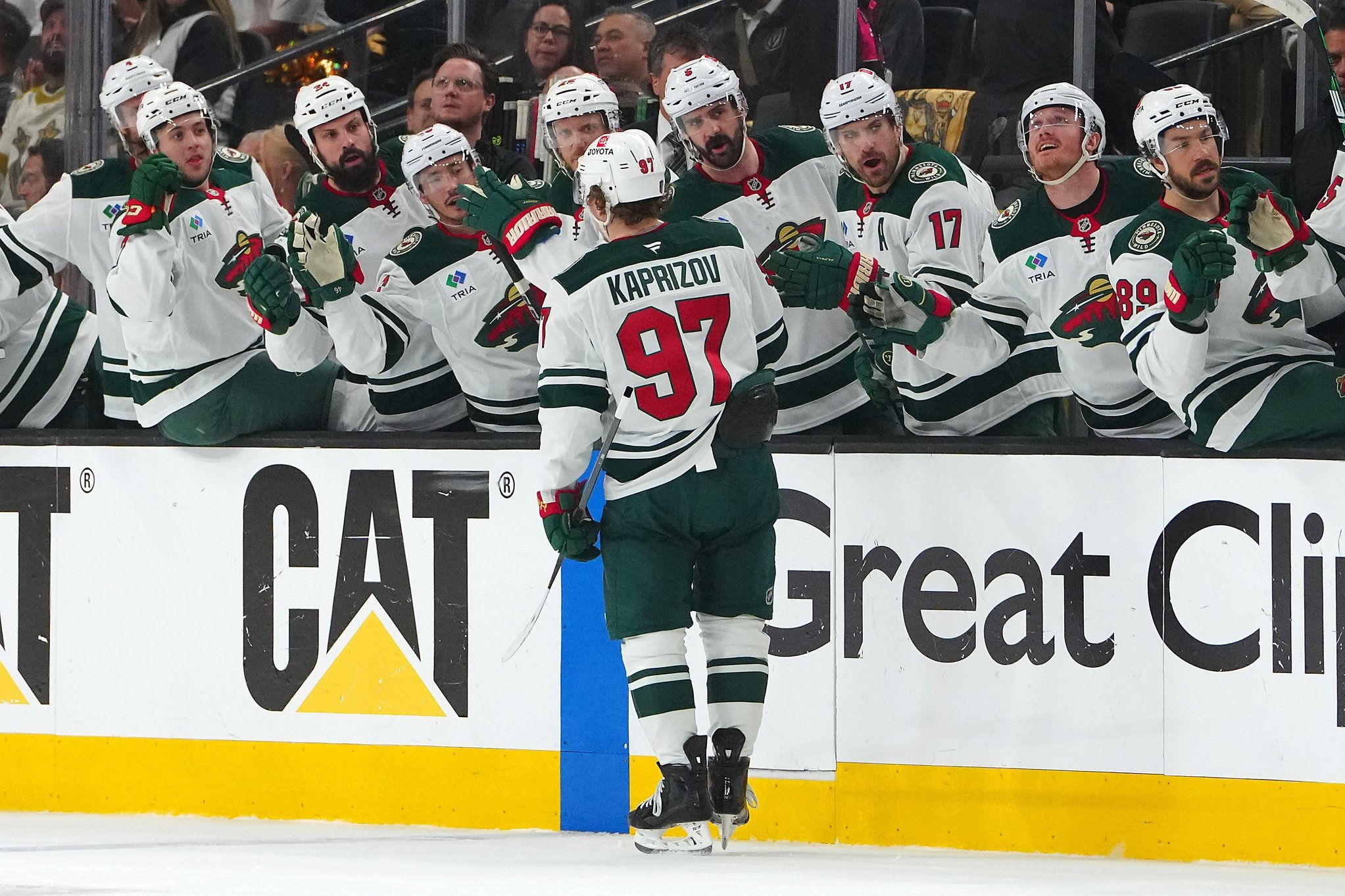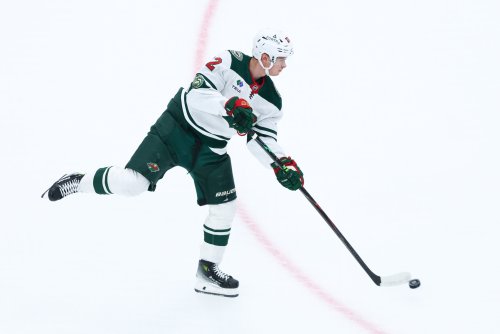
The Minnesota Wild's plan for re-signing Kirill Kaprizov was simple: Wait until he got back to the United States and knock him over with a massive deal. Rumors circled that the Wild were willing to give Kaprizov eight years at a $16 million Average Annual Value, a contract that would make the franchise's first mega star the highest-paid in the NHL.
It sounds like they did just that, and struck out.
A fan base that has been nervously awaiting the news that the Wild locked up their guy is not going to receive this news well. Kaprizov hits unrestricted free agency next July 1, which kicks up the urgency to make a decision with Kaprizov. Can the Wild find a way to sign him, or do they have to start going another way?
No one in the State of Hockey is looking for optimism at this time, but it is worth mentioning that rejecting this mega offer isn't confirmation that Kaprizov's days in Minnesota are numbered at 300 or fewer. Turning down a deal that makes you the highest paid in the NHL is admittedly a pretty big red flag, but even from a purely financial standpoint, there are reasons to reject an eight-year offer.
Kaprizov spent his last four years (and will spend this one) as underpaid on his contract from essentially Day 1. He signed a five-year, $45 million deal ($9 million AAV), averaging 48 goals and 99 points per 82 games ever since. That could very well be a motivating factor in these negotiations.
While most NHL players tend to opt for the security of a long-term contract -- and often, for a lot less money than $128 million -- seven- and eight-year deals tend to be extremely team-friendly for anyone in or around their prime. The cap goes up, new records get broken, and a $9 million deal in 2020 goes from being market-setting at the time to a bargain in 2025.
Sixteen million dollars is a ton of money, and it's going to be a lot of money in the future. There's no disputing that. It'd be about 15.4% of the salary cap in 2026-27, which would be Year 1 of the deal. In Year 2, when the cap rises from $104 million to $113.5 million in 2027-28, that percentage dips to 14.1%. Let's assume the cap rises to $120 million in 2028-29. $16 million is now "just" 13.3% of the cap, the equivalent of someone making $12.7 million this season.
Again, that's a lot of money. But assuming that Kaprizov is a player worth 15.4% of the cap today, by the time we get to Year 3, he could be an $18.5 million player on the open market.
And that's just by Year 3, while making a pretty modest guess as to how the cap will rise. You have to bet on the cap continuing to rise, leaving Kaprizov a total bargain over the following five years.
Putting $16 million dollars in front of Kaprizov suggests the Wild believe money is a motivating factor. Why wouldn't it be? But if money is a motivator, $16 million is going to start looking underwhelming as we creep toward 2030 and beyond, at least for a player of his stature.
The best-case scenario for the Wild here is that Kaprizov isn't willing to go eight years, but he is willing to stay in Minnesota for three-to-five years. That's exactly what happened last time, if you'll recall. But even on a shorter deal, we shouldn't expect Kaprizov to come cheap.
Auston Matthews did this exact thing in Toronto, inking a four-year deal with the Maple Leafs that kicked in last year at $13.25 million AAV, or 15.06% of the cap. If that's the framework for a shorter-term deal for Kaprizov, that would land at around $15.6 million of a $104 million salary cap.
That's a great illustration of why eight years might not be appealing to Kaprizov. Why lock yourself in for eight years at $16 million if you can get $14 million over four? Or even $15 million?
We can see potential for a contract standoff to happen over this. Bill Guerin and the Wild might think, why pay top-dollar for Kaprizov for a short-term deal? It's a fair question, but if that's what it takes to keep Kaprizov in Minnesota... they kind of have to suck it up and do it.
There's no way Kaprizov doesn't know the leverage he has over Minnesota. They've been a superstar-starved team for two decades, and their whole plan for contention revolves around keeping him in St. Paul. Kaprizov has the ability to max out his earnings for the next three, four, or five years, while still getting to cash in again in his early 30s.
If he wants to.
That's going to be the question now. Is he amenable to stay in Minnesota, or not? If Kaprizov does, it's clear that it's going to be entirely on his terms, and the Wild front office and ownership will have to smile and thank him for doing so. If not... well, let's hope that's not the case.
Think you could write a story like this? Hockey Wilderness wants you to develop your voice, find an audience, and we'll pay you to do it. Just fill out this form.
-
 5
5
-
 1
1





.thumb.jpg.acd5dedd7251543624c6b47bfa6a1212.jpg)

Recommended Comments
Join the conversation
You can post now and register later. If you have an account, sign in now to post with your account.
Note: Your post will require moderator approval before it will be visible.